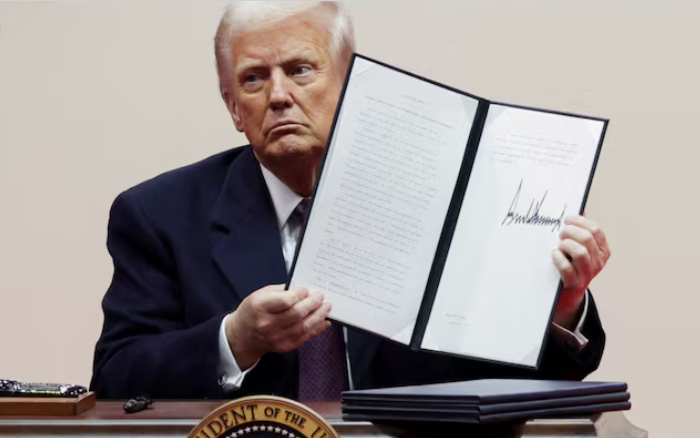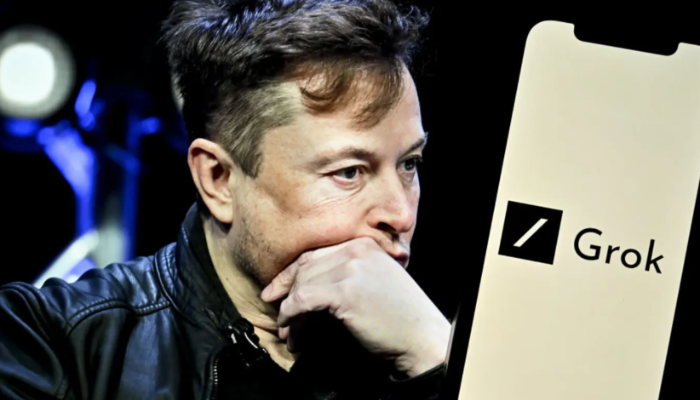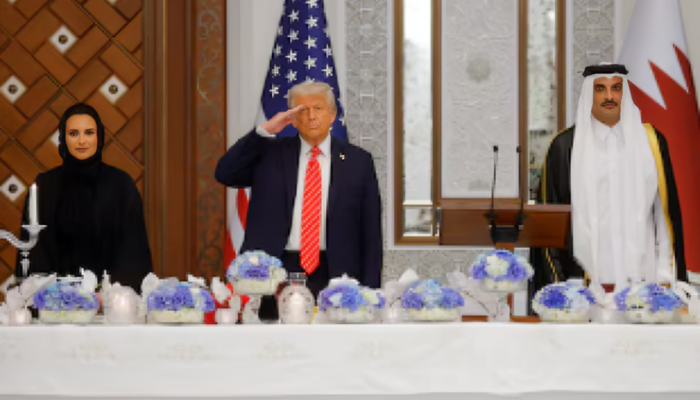
In a dramatic move on January 20, 2025, U.S. President Donald Trump issued an order revoking the 2023 executive action signed by his predecessor, Joe Biden, that aimed to address the potential risks posed by artificial intelligence (AI). The executive order, introduced by Biden, had sought to mitigate AI-related risks to national security, public safety, the economy, and workers. Trump’s revocation of the order marks a notable shift in the U.S. government’s approach to AI regulation, placing more emphasis on promoting technological innovation.
The original executive order from Biden had included stringent measures requiring developers of AI systems that posed significant risks to the country to submit their safety test results to the U.S. government before releasing their technologies to the public. This provision was intended to align AI safety protocols with the Defense Production Act, giving agencies the authority to ensure that AI systems did not pose unacceptable threats in areas such as national security, public health, and cybersecurity.
Biden’s executive order also directed relevant federal agencies to set standards for testing AI systems, ensuring that new technologies were thoroughly vetted for potential chemical, biological, radiological, nuclear, and cybersecurity risks. However, despite these efforts, U.S. lawmakers have yet to pass comprehensive legislation to establish clear guardrails for the development and deployment of AI systems.
The move to revoke the order is consistent with the 2024 Republican Party platform, which had criticized Biden’s executive order for hindering AI innovation. Republicans, including Trump, have long advocated for a more free-market approach to AI development, focusing on fostering technological progress while supporting free speech and human flourishing. The platform emphasized that AI innovation should not be stifled by excessive regulations or government oversight.
Generative AI, which has gained widespread attention in recent years, was a key factor in the debate surrounding Biden’s executive order. Generative AI systems are capable of creating text, images, and videos in response to user prompts, leading to a surge of excitement in the tech industry. However, this excitement has been accompanied by concerns over the potential negative consequences of these technologies, such as the displacement of jobs and the spread of misinformation.
In response to these concerns, Biden’s administration sought to implement measures to ensure that AI development would not occur without proper safety precautions. However, the order faced significant opposition from many in the tech industry, who argued that it could impede the rapid progress of AI development and increase regulatory burdens for developers.
Adding complexity to the issue, the U.S. Commerce Department imposed new restrictions on AI chip and technology exports last week, which targeted companies like Nvidia. These restrictions are aimed at preventing the misuse of AI technologies in countries that may pose a threat to U.S. interests, but they have drawn sharp criticism from industry leaders who worry that they will limit the global reach of U.S. tech companies.
Despite Trump’s decision to revoke Biden’s executive order, the Biden administration’s stance on AI development is not entirely without support. Last week, Biden issued a separate executive order aimed at addressing the growing energy demands of advanced AI data centers. This order calls for the leasing of federal land, particularly from the Department of Defense and the Department of Energy, to accommodate the increasing power needs of AI infrastructure.
Although Trump did not revoke this order, the decision to repeal Biden’s earlier measures on AI safety signals the ongoing ideological divide between the two parties on the regulation of emerging technologies. While the Biden administration has focused on ensuring that AI development aligns with national interests and public safety, the Trump administration’s move reflects a preference for allowing the private sector to take the lead in AI innovation without heavy-handed government intervention.
As AI continues to evolve at a rapid pace, the debate over its regulation is expected to intensify. Trump’s revocation of the executive order may embolden other countries and industries to pursue more relaxed regulations on AI development, while raising questions about the role of government in managing the potential risks associated with these powerful technologies.
The future of AI regulation in the U.S. remains uncertain as both political parties grapple with how best to balance the need for innovation with the responsibility of safeguarding public and national interests. While Trump’s actions may signal a retreat from stringent oversight, the growing global importance of AI means that the debate is far from over.







